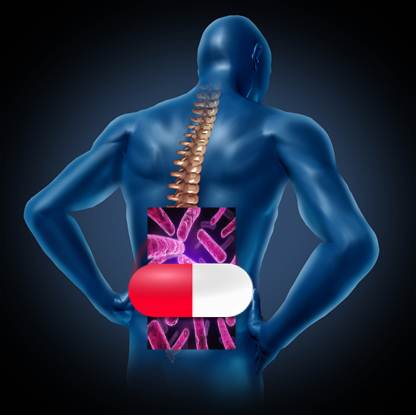Low Back Pain Infection? More Evidence that Common Low Back Pain in Some Patients May be Caused by Bacteria
Low back pain infection? These are not words that we hear commonly together. I blogged two months ago that new research was started to demonstrate that low back pain in some patients may have a bacterial cause. Yes, you read that right, your chronic back pain may be caused by a nasty infection of your low back discs. To recap, a few studies have now taken samples of disc tissue in back pain patients and found bacteria where there should be none. One paper showed that these infections might be associated with what’s called Modic changes. This is basically swelling in the vertebrae bones around the bad disc. It’s been assumed for many years that these Modic changes were due to the degenerated disc’s inability to be a shock absorber and the vertebrae having to absorb more energy (hence the bone swelling).
However, it looks like some smart physicians in Europe have taken this concept one step further, by treating chronic low back pain patients who had a prior disc herniation and who had Modic changes with broad spectrum antibiotics for 100 days. Half of the group got the antibiotics and the other half got a placebo. The result, highly significant drops in pain in the group that got the antibiotic.
The upshot? Combining all of this research, it does look as if patients who have Modic changes on their MRIs (maybe 1/4-1/3 of all back pain patients) who aren’t helped by conventional therapy might want to consider a course of antibiotics. If you do try antibiotics, since they also kill good gut bacteria, make sure you take a good probiotic formula during this time!

If you have questions or comments about this blog post, please email us at [email protected]
NOTE: This blog post provides general information to help the reader better understand regenerative medicine, musculoskeletal health, and related subjects. All content provided in this blog, website, or any linked materials, including text, graphics, images, patient profiles, outcomes, and information, are not intended and should not be considered or used as a substitute for medical advice, diagnosis, or treatment. Please always consult with a professional and certified healthcare provider to discuss if a treatment is right for you.

